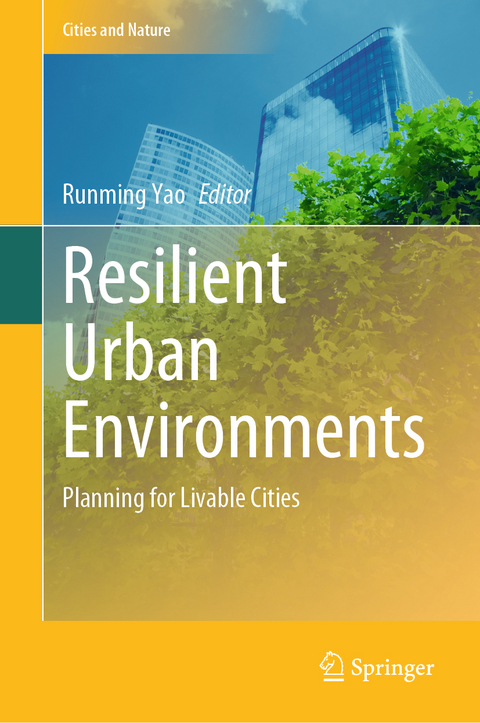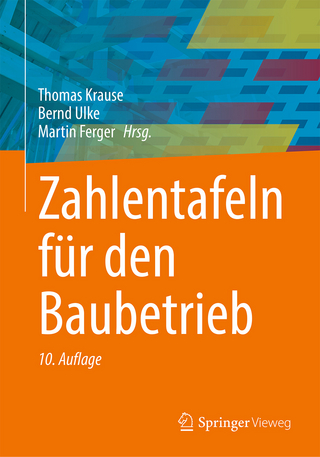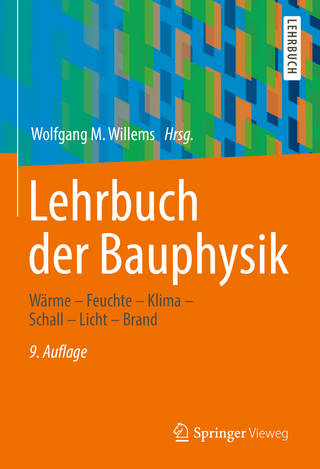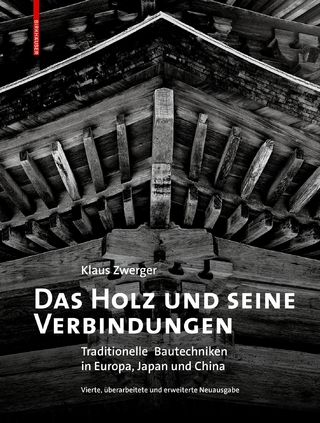
Resilient Urban Environments
Springer International Publishing (Verlag)
978-3-031-55481-0 (ISBN)
This book aims to provide evidence of the impact of climate change and urbanization on cities' urban environments thus on human health and wellbeing; and principles and methods for the improvement of the resilience of a city to extreme weather and long-term climatic changes through case studies. The book will have three themes of 1) Understanding the adverse environmental impact on human health and wellbeing; 2) analysis of adaptation and mitigation measures through modeling technologies; 3) providing best practice examples of the implementation of the proposed measures.
The book will present the liveable cities including factors affecting liveability; ecological and biophilic city; economic values; health and well-being and opportunities for people.
Physical and social health will be an important issue in the context of resilient cities. The widespread concerns will be addressed including physical and mental health; wellbeing in terms of building use;building surroundings and Biophilia; location in the context of sustainability and work-life balance; and spatial scale and community.
Prof. Runming Yao is a Lead Academic in Design and Management of Sustainable Built Environments at the School of Civil Engineering, Chongqing University (Secondment), and the School of the Built Environment, University of Reading; Her research and teaching experience focuses on energy and built environmental quality including modeling urban microclimates; indoor and outdoor thermal comfort, air quality and energy efficiency of buildings. She is the Editor-in-Chief of the Journal of Building Engineering (Elsevier); She had been a principal/co-Investigators for numerous research projects in China and UK in the field of sustainable built environments including the topics of air quality, indoor environmental quality, low carbon buildings, urban environments, etc. She is the Fellow of the Chartered Institution of Building Services Engineers (FCIBSE); CIBSE Guide: Environmental Design, AM11; Halton Foundation (Ventilation control strategies for schools), author CIBSE Building for Extreme Climate. Funding: EPSRC, RICS Research Trust, BC, FCO; member of assessment panels for international research councils (NOW, FCT, NSERC, RGC, MOST). She published over 200 papers; frequently presents and gives keynotes at international conferences.
Introduction.- Concept of livable cities.- Wellbeing and social health.- Burden of heatwaves and Mortality risks.- Air quality and health impact.- Urban heat island and heat stress.- Modeling urban microclimates.- Modelling Air Quality in the Urban Environment.- Urban ventilation.- Balancing noise environment and indoor soundscaping.- Urban Green Infrastructure.- Urban Flood Resilience.- Nature-based solutions.- Energy demand reduction.- Clean and renewable energy.- Zero-carbon cities.- Principles for the planning of zero-carbon cities/communities.- Global policies and practices for transforming city-regions.- Urban maintenance and robustness.- Place-based systems approach to tackle the grand challenges.
| Erscheinungsdatum | 18.06.2024 |
|---|---|
| Reihe/Serie | Cities and Nature |
| Zusatzinfo | XVI, 380 p. 137 illus., 110 illus. in color. |
| Verlagsort | Cham |
| Sprache | englisch |
| Maße | 155 x 235 mm |
| Themenwelt | Technik ► Architektur |
| Technik ► Elektrotechnik / Energietechnik | |
| Schlagworte | Air Pollution • Health and Wellbeing • Heat Stress • Landscape/Regional and Urban Planning • Modelling • Systemic Approach |
| ISBN-10 | 3-031-55481-7 / 3031554817 |
| ISBN-13 | 978-3-031-55481-0 / 9783031554810 |
| Zustand | Neuware |
| Haben Sie eine Frage zum Produkt? |
aus dem Bereich


